UBC is a Tier 1 international research-intensive university where all faculties emphasize the need for original research and scholarship. The faculty of dentistry has an exceptional history of research achievement and has implemented, through its strategic plan, a foundation for continued excellence in research.
Currently three clusters or groups define the research foci at UBC Dentistry. Clusters enable more efficient handling of resources such as people, equipment and space; better development of research projects like the identification of co-applicant grant opportunities; and facilitate faculty development in the areas of recruitment, mentoring, and time preservation, to name a few. The three current clusters—community and education, oral and biomedical sciences, and clinical research, technology transfer and dental materials sciences—represent approximately 40 faculty members engaged in research.
It is significant that the faculty of dentistry has two Tier 1 Canada Research Chairs, professors Dieter Brömme and Christopher Overall. Distinct in their respective areas, they can be understood collectively in the areas of disease markers: lysosomal proteases and proteolytic mechanisms of cell signalling. The BOLD forensic laboratory, under the aegis of UBC Dentistry, is devoted exclusively to forensic dental services, research and teaching and the use of dental evidence for crime investigation and prosecution. Another group, Elders Link with Dental Education, Research and Service (ELDERS) Group, has created a highly successful model that strives to address the oral health needs of seniors. The group is a complementary blend of research, education and community service with each component enriching the other. Sleep apnea and airway obstruction researchers at UBC are renowned for their work including the development of Klearway™, a worldwide-patented device, which is the largest selling adjustable appliance used in the field generating royalties paid to UBC to help further research in this area. Other top areas of UBC Dentistry’s basic science and clinical research include:
- oral cancer detection and prevention
- endodontic disinfection and dental biofilms
- pediatric dentistry research in health promotion and access to care
- embryonic development of the face and teeth
- bone development, disease and regeneration
- wound healing and mechanisms of scar formation
- regulation of cell behaviour on implant surfaces by substratum topography
- plus, dental instruments and materials, interactive dental anatomy, biomaterials, and dental education
Building awareness in the dental community about its research activities is a priority for the faculty. UBC Dentistry’s annual Research Day is a yearly forum to highlight our current research accomplishments. Since it’s inception in 2008, Research Day has grown to reach beyond its own constituents, to include people from multiple disciplines across the university and the Vancouver area including undergraduate and graduate students, faculty, staff and private practitioners. One of the main goals of the day is to link basic science and clinical applications through a program of presentations. This is effectively accomplished utilizing presentations from basic science and clinical faculty who speak to select topics that are relevant to a clinical case. Recent Research Day topics have covered the basic science of tissue destruction and esthetic implant placement (2008), oral cancer and its early detection (2009) and 3D imaging of the craniofacial complex (2010). In 2011, the topic of oral health and the frail population will be discussed.
Recent Canadian Foundation for Innovation funding ($9.4 million) will expand UBC Dentistry’s bioimaging facility into a high-throughput phenogenomics centre, making it home to an exciting fusion of researchers from Dentistry, Medicine and Pharmaceutical Sciences. This expansion brings together some of the university’s best and brightest researchers to study intra and extra hard connective tissue development, diseases and regeneration. Ten principal investigators organized in two complementary research groups have been integrated into the centre. One group is focused on the biology of bone-destructive diseases and development of strategies to inhibit bone loss, while the other is focused on bone developmental biology and tissue regeneration.
Western Canada now has more options in clinical and specialty training: UBC Dentistry’s integrated clinical specialty programs in endodontics, pediatric dentistry, periodontics, prosthodontics and orthodontics are positioned to meet the critical need for basic science and clinical research. Programs are combined degrees; the diploma in a clinical specialty is completed in conjunction with a PhD or MSc in Craniofacial Science to ensure that all students receive training as clinicians and researchers. In BC, the rest of Canada and the world, there is a recognized shortage of dental academics who are prepared to conduct outstanding research and teach at dental institutions. Due to the aging of current faculty and the expanded number of North American dental schools, this shortage will continue to increase. UBC Dentistry is meeting this demand not only with clinical specialists, but is also preparing the next generation of dental faculty members by providing graduate training in a wide variety of clinical specialties and research. This inclusive portfolio of recognized specialty degree programs also allows UBC Dentistry to provide more integrated management for their patients with complex oral and craniofacial disorders. We envision that patients with special needs could be referred from across the province or western Canada. UBC Dentistry’s undergraduate dental students will also directly benefit from an inclusive portfolio of graduate programs that manage these more complex cases. Studying at a dental school next to professionals undertaking additional clinical specialty training will enable them to observe this full range of treatment. This valuable exposure during their dental education will help them become more effective oral physicians.
Over the next five years the theme, “Amplify Research Productivity” will guide the faculty to certain research-specific goals: more research active faculty, more research space, more grants, more publications and greater research eminence. What follows are some examples of Dentistry’s research and the people who do it.
THE AUTHOR
Read more about amplifying the research productivity at www.dentistry.ubc.ca/research_productivity
Research Clusters
Clusters Define UBC Dentistry’s Research Foci and Enable More Efficient Handling of Resources
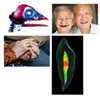
Three research clusters—Community and Educational, iMatrix (oral and biomedical sciences), and Clinical Research, Technology Transfer and Dental Materials Sciences—represent approximately 40 researchers at UBC Dentistry. Discover more about each cluster and the people in them at http://www.dentistry.ubc.ca/research
The Overall Approach
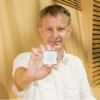
From periodontology to systems biology, UBC Dentistry professor and Canada Research Chair Christopher Overall’s discoveries are not only leading to better dental care, they are providing novel insights into human immunity and disease. Read more.
Oral Insights into Scarless Wound Healing
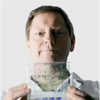
Periodontology researcher, clinician and professor Hannu Larjava is investigating the remarkable self-healing properties of gums and soft tissue in the mouth in order to improve wound healing in the rest of the body and to reduce painful, debilitating and costly scarring. Read more.
Battling Biofilms—Innovations in Endodontics
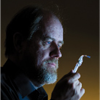
Computational fluid dynamics, multimedia teaching tools and novel irrigation fluids are among the arsenal of technologies developed and employed by UBC Dentistry professor Markus Haapasalo. They are all part of a multiple attack strategy to eradicate biofilms—pernicious colonies of bacteria that destroy teeth, roots and gums. Read more.
ELDERS Wisdom Improves Seniors’ Quality of Life
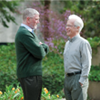
UBC’s ELDERS (Elders Link with Dental Education, Research and Service) Group has created a highly successful model that strives to reverse the trend of neglected oral health care of seniors in a youth-skewed culture. The group—under the lead of Dr. Michael MacEntee—is a compelling blend of research, education and community service with each component enriching the other. Read more.
Toothless No More: Team Aims to Reduce Rejection of Implants
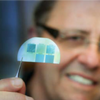
An oral biologist in the faculty of dentistry, Don Brunette seeks to create a better dental implant by understanding how cells behave around different types of implant surfaces. Read more.
Chicken Embryos Illuminate Cleft Palate Problems

For Dr. Joy Richman, eggs offer an untold wealth of information about human development. A pediatric dentist and development biologist, Richman studies chicken embryos, focusing on the intricately patterned facial bones and limbs. Read more.
Sleep Apnea: Children May Benefit from UBC Device
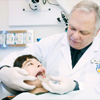
Renowned worldwide for his research contributions on the use of oral appliances for the treatment of snoring and Obstructive Sleep Apnea and their effects on airway size and tongue muscle activity, Dr. Alan A. Lowe, professor and chair of the Division of Orthodontics is the inventor of Klearway™, the largest selling adjustable appliance used in this field (see http://www.klearway.com/research.htm). His recent work includes a funded clinical trial underway for the last two years to develop clinical protocols for the application of Klearway appliance therapy to sleep-disordered breathing in a child population. Read more.
Moving to the Forefront of Bioimaging—A New High-Throughput Centre at UBC Dentistry
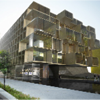
Renowned for its hard tissue imaging and analysis expertise, the faculty has been awarded a multimillion dollar government grant—one of the largest it’s ever received—to expand its bioimaging infrastructure. Read more.
Clinical Specialty Graduate Programs—an Inclusive Portfolio
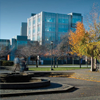
Western Canada now has more options in clinical and specialty training: UBC Dentistry’s integrated clinical specialty programs in endodontics, pediatric dentistry, periodontics prosthodontics and orthodontics are positioned to meet the critical need for basic science and clinical research. Read more.
The Only Dedicated Forensic Odontology Laboratory in North America
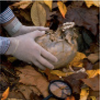
Lead by Dr. David Sweet OC, and under the aegis of the faculty of dentistry, the Bureau of Legal Dentistry (BOLD) laboratory is devoted exclusively to forensic dental services, research and teaching and the use of dental evidence for crime investigation and prosecution. Read more.
Oral Cancer Prevention
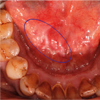
Drs. Lewei Zhang and Catherine Poh, two provincial oral pathologists, are the founders and core members of the BC Oral Cancer Prevention Program, the host of the longest and largest longitudinal study of oral precancers in the world. Using clinical, pathological and molecular markers from this cohort, Zhang’s work focuses on the development of risk models for precancer progression and cancer recurrence after treatment. Poh leads the treatment arm using novel optical and molecular technologies. The spin-off of this direction is to lead a cross-Canada multicentric Phase III clinical trial using optical technology to guide the surgical treatment. Building community partnerships with Vancouver’s Downtown Eastside, an underserved and marginized community, Poh has also lead the community outreach activities to assess oral cancer risk and oral care needs in this urban low-income community. Both Zhang and Poh are currently working with oral pathologists from other provinces to build the first Dysplasia Registry in North America. Read more.
View and listen to Dr. Poh’s presentation: Mobile High-risk Community Outreach.
View and listen to Dr. Zhang’s presentation: Is my biopsy adequate?
View and listen to Dr. Michele Williams’ presentation: Early Detection of Oral Cancer in BC
Annual Research Day
Research Day is a yearly forum to highlight current research accomplishments and to define the future opportunities for new investigation. Read more.
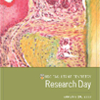 In 2008, the program, “Implants: From Basic Science of Tissue Destruction to Predictable Esthetic Implant Placement” demonstrated how the faculty is making contributions in basic biomedical research that are leading to improved treatment options for patients.
In 2008, the program, “Implants: From Basic Science of Tissue Destruction to Predictable Esthetic Implant Placement” demonstrated how the faculty is making contributions in basic biomedical research that are leading to improved treatment options for patients.
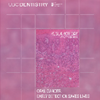 In 2009, with its affirmative title, “Oral Cancer: Early Detection Saves Lives”, the basic research of premalignant lesions and oral cancer, and the progression of these findings into clinical applications that benefit patients lead the day.
In 2009, with its affirmative title, “Oral Cancer: Early Detection Saves Lives”, the basic research of premalignant lesions and oral cancer, and the progression of these findings into clinical applications that benefit patients lead the day.
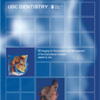 Three-dimensional is the buzz. In 2010, “3D Imaging for the Assessment and Management of the Craniofacial Complex” showcased advances in imaging research critical to the dental profession.
Three-dimensional is the buzz. In 2010, “3D Imaging for the Assessment and Management of the Craniofacial Complex” showcased advances in imaging research critical to the dental profession.
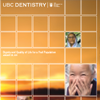 “Dignity and Quality of Life for a Frail Population” framed 2011 with research by several members of UBC’s ELDERS (Elders Link with Dental Education, Research and Service) Group, a multidisciplinary team which draws on expertise from many faculties.
“Dignity and Quality of Life for a Frail Population” framed 2011 with research by several members of UBC’s ELDERS (Elders Link with Dental Education, Research and Service) Group, a multidisciplinary team which draws on expertise from many faculties.
